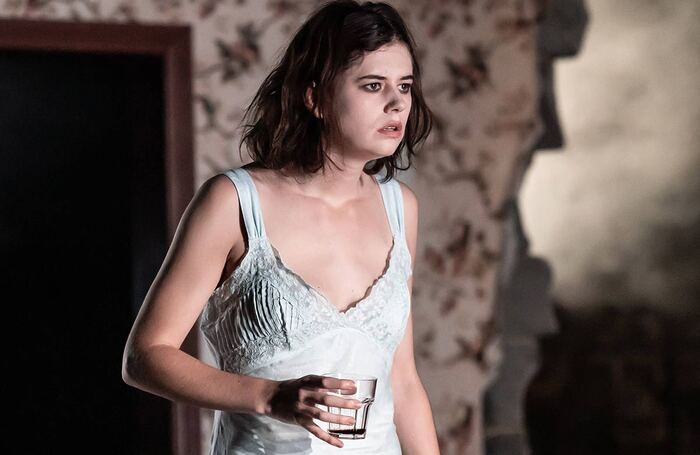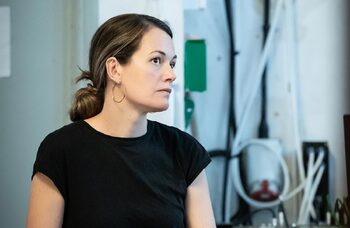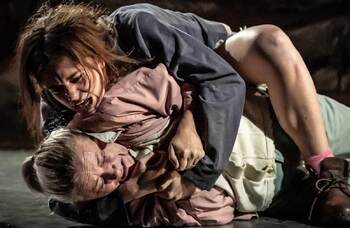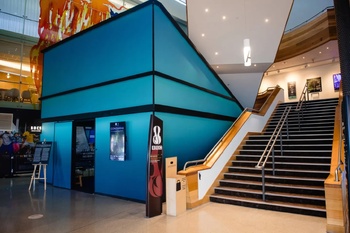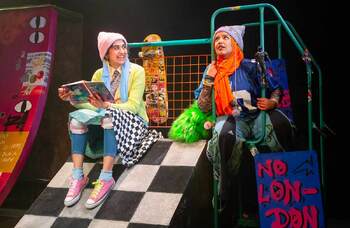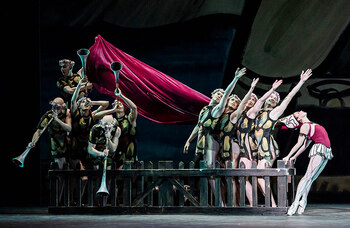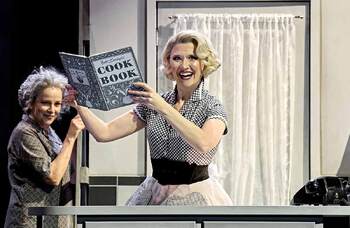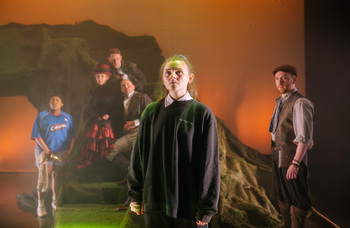Wrenching, atmospheric revival of Marina Carr’s still-shocking story of generational trauma in rural Ireland
Grief, guilt and the ghosts of a tragic past have a stranglehold over the characters in Marina Carr’s gutting 1996 drama. The bleak story centres on charismatic, heartbroken Portia, whom we encounter on her 30th birthday, drinking brandy for breakfast as she wallows in miserable memories of the fiercely co-dependent, mutually abusive relationship she had with her twin, Gabriel, who drowned 15 years earlier.
For a play so saturated in misery, it has a striking delicacy. Carr’s resonant writing is in Irish Midlands dialect, a rich jumble of curses, poetic phrasings, pitch-black deadpan humour and heartfelt tenderness. After a shocking first-act turn, the fascinatingly ambiguous second half develops through a knotty collection of flashbacks, alternative realities, visions of purgatory, or some combination of all three.
Director Carrie Cracknell carefully crafts an atmosphere of deep, inescapable melancholy. Stately, wordless passages bookend taut, emotionally shattering scenes, giving the audience breathing space as the characters pick up the pieces after their increasingly vicious arguments, sweeping up broken glass, clearing away uneaten dinners, or just sharing cigarettes in the rain.
Continues...
Alison Oliver gives a committed, ferocious central performance as Portia, tears streaking her cheeks as she snaps from fury to manic exuberance to maudlin, sloppy drunkenness. Never at peace, she paces relentlessly, climbing on to furniture or scrambling over rocks – but there are moments of sudden, absolute stillness, too, when she’s caught off guard by a particularly traumatic memory. Mairead McKinley is strong as Portia’s long-suffering mother Marianne, moving with a deliberate slowness, shoulders hunched as though physically carrying the emotional weight of the years of misery that her family has endured. Elsewhere, Fergal McElherron makes a strong impression as Portia’s gentle-hearted uncle Senchil. Although he describes himself as a failure, only he seems at all contented with his life, doting on Kathy Kiera Clarke’s tough, no-nonsense sex worker Maggie May. The care they show one another stands in stark contrast to the unremitting cruelty all around them.
Composer Maimuna Memon provides a gorgeous, haunting score built on mellifluous guitars, ambient drones, and raw, yearning vocals sung live with extraordinary power by Archee Aitch Wylie, who hovers in the shadows in an oversized puffer jacket – a ghostly vision of drowned brother Gabriel.
Alex Eales’ striking set realistically replicates the Coughlans’ spacious, tastefully wallpapered home. But there’s a gaping hole in the house’s rear wall revealing the muddy slope of a riverbank beyond, where Gabriel died, and to which Portia returns nightly, recreating her brother’s last journey as she prepares to end her own life. Reflecting Portia’s obsessive, intrusive thoughts, this powerful image elegantly encapsulates the sense of aching absence at the heart of Carr’s dark tale.
More Reviews
Recommended for you
More Reviews
Recommended for you
Most Read
Across The Stage this weekYour subscription helps ensure our journalism can continue
Invest in The Stage today with a subscription starting at just £7.99
